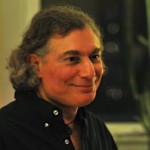
The Center for Latino/a Studies and Engagement (CL@SE) announced FIESTAS (Families Involved in Education: Sociocultural Teaching and STEM) as one of two winning research project proposals of the 2013 Faculty Summer Stipends for Engaged Research.
 Families Involved in Education: Sociocultural Teaching and STEM (FIESTAS)
Families Involved in Education: Sociocultural Teaching and STEM (FIESTAS)
FIESTAS is a collaboration between OSU’s College of Education, 4H Youth Development, and the Science and Math Investigative Learning Experiences (SMILE) program. The primary focus of the 4-H STEM program is to enhance the participation and knowledge of STEM related topics of Latino and underrepresented youth in the 3rd to 5th grades. Because of the changing demographics and increasing diversity of the K-12 population, which do not align with preservice teacher (PST) demographics, we believe that engagement with youth in culturally and linguistically contexts is needed. This project transforms the ways that preservice teachers practice STEM and empower youth within community-based and authentic learning contexts.
The present study seeks to understand: (a) How do PSTs position themselves in relation to content, children, and families? (b) How do teacher preparation courses disrupt the commonplace to transform views of teaching and learning? (c) And, how do PSTs engage in praxis in which they apply and enact education concepts in community settings? Data collection and analysis focuses on preservice teachers’ reflections: before and after their participation in Family Math and Science Nights and throughout the term in which they engage with youth in the afterschool 4H program in an ongoing way during the course.
Kathryn Ciechanowski (co-PI), ESOL/Bilingual Programs, College of Education
SueAnn Bottoms (co-PI), Elementary Science Education, College of Education
Ana Lucia Fonseca, Program Lead, 4H STEM afterschool program
Jenny de la Hoz, PhD student in Science Education, College of Education












 Rick Wagoner is an Assistant Professor in the Higher Education and Organizational Change Division of the Graduate School of Education and Information Studies at the University of California, Los Angeles (UCLA). His research and scholarship centers on community colleges and addresses them from multiple perspectives including theoretical and scholarly, practitioner oriented, and policy. He is particularly concerned with faculty work and professional identity, colleges as organizations, and the transfer function from the perspectives of individual students, institutions, and state-level policies. Professor Wagoner’s interest in community colleges is deeply grounded in his own experience as he graduated with an AS degree from the College of Eastern Utah in Price, Utah and has worked as an administrator and adjunct professor at Pima Community College in Tucson, Arizona.
Rick Wagoner is an Assistant Professor in the Higher Education and Organizational Change Division of the Graduate School of Education and Information Studies at the University of California, Los Angeles (UCLA). His research and scholarship centers on community colleges and addresses them from multiple perspectives including theoretical and scholarly, practitioner oriented, and policy. He is particularly concerned with faculty work and professional identity, colleges as organizations, and the transfer function from the perspectives of individual students, institutions, and state-level policies. Professor Wagoner’s interest in community colleges is deeply grounded in his own experience as he graduated with an AS degree from the College of Eastern Utah in Price, Utah and has worked as an administrator and adjunct professor at Pima Community College in Tucson, Arizona.
 Deborah Rubel (pictured on the right), Ph.D, Associate Professor of Counseling in the College of Education, is the recipient of the 2012 Outstanding Article Award published in the Journal for Specialists in Group Work (JSGW) for “Application of Focal Conflict Theory to Psychoeducational Groups: Implications for Process, Content, and Leadership.” She and co-author, Julia Champe, Ph.D of Southern Illinois University, accepted the award at the American Counseling Association National Conference in Cincinnati, OH on March 22. This is Deborah’s second time receiving the award – the first being in 2008 for “An Exploratory Study of Expert Group Leadership” co-written with William B. Kline, Ph.D of Western Kentucky University.
Deborah Rubel (pictured on the right), Ph.D, Associate Professor of Counseling in the College of Education, is the recipient of the 2012 Outstanding Article Award published in the Journal for Specialists in Group Work (JSGW) for “Application of Focal Conflict Theory to Psychoeducational Groups: Implications for Process, Content, and Leadership.” She and co-author, Julia Champe, Ph.D of Southern Illinois University, accepted the award at the American Counseling Association National Conference in Cincinnati, OH on March 22. This is Deborah’s second time receiving the award – the first being in 2008 for “An Exploratory Study of Expert Group Leadership” co-written with William B. Kline, Ph.D of Western Kentucky University.